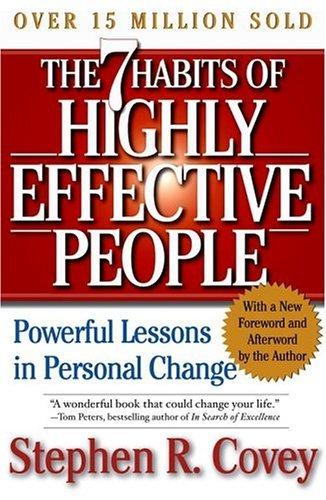If you’re at all interested in self-improvement, you must have heard of The 7 Habits of Highly Effective People by Stephen R. Covey. It’s become something of a ‘bible’ in this modern day. Schools recommend it to their students, bosses to their employees (and vice versa), I bet even hospitals recommend it to patients sometimes.
Just because something is popular or bestselling, though, doesn’t necessarily mean it’s good. I will come straight up and admit I haven’t read the whole thing yet. I’ve only read the first few pages. I agree with his overall idea, that instead of changing our personalities we need to change our principles and our deep thinking in order to be more effective. That’s a good idea. Better than good, it’s true.
What I have a problem with is the preachy, excessively wordy, downright disheartening way these ideas are expressed. A book at least has to hold your attention before it can proceed to inform or educate you, or even educate you. Stephen R. Covey fails at the very first step, with his cheesy metaphors, self-flagellating examples and plodding writing style. I’m thinking of buying the audio version instead. I mean, there might be something good in there since it’s spawned so many spin-offs and rip-offs, but getting to it…that’s another matter.

